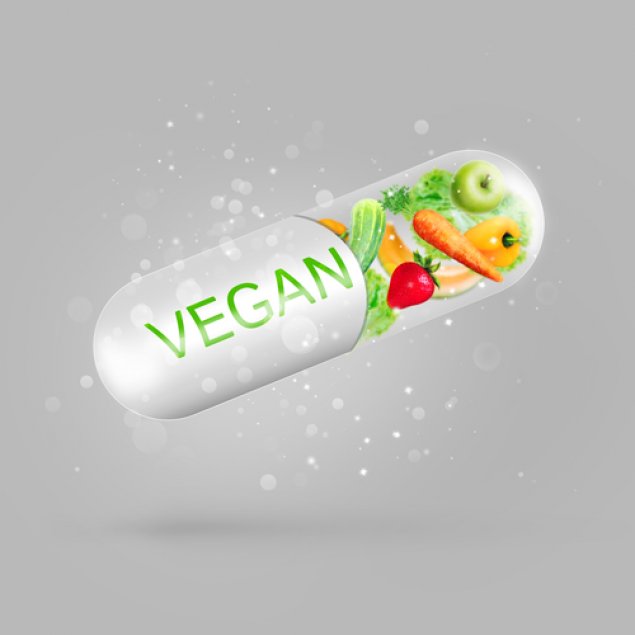Vegan vs Vegetarian

What Vegans and Vegetarians Eat
Most vegetarians do not eat meat, fish, or poultry, but they tend to consume dairy products and eggs. Many vegetarians also do not eat products that contain gelatin or other animal-based products. Lacto-vegetarians consume dairy products, but not eggs; ovo-vegetarians eat eggs, but not dairy products; and lacto-ovo-vegetarians eat eggs as well as dairy products. There is also pescetarianism, a vegetarian-like diet that avoids meat and poultry but does include fish.
The vegan diet tends to be much stricter than most vegetarians' diets. Meat, fish, poultry, dairy, eggs, and all other animal-based products, like honey, are entirely avoided. Moreover, any food or other (sometimes inedible) product that makes use of animals is avoided. This often extends to clothing, medicines, and anything else in which animals or animal products are used. For example, a vegan would not use leather shoes or belts, cosmetics that have been tested on animals, down comforters, gelatin medicine capsules, woolen sweaters, or fur coats.
Fruits, vegetables, grains, and nuts are staples of both the vegan and vegetarian diets. Sometimes tofu is used as a replacement for meat-based products.
Reasons for Veganism vs Vegetarianism
While some vegans may cite nutritional concerns or food allergies as the primary reason for adhering to their diet (dietary vegans), most adopt a vegan lifestyle for moral and political reasons (ethical vegans). The vegan point of view tends to be that animals are not here to be exploited by man, and that commercialization of animals involves a fundamental, inhumane component and lack of respect for basic life.
There are many reasons one might be vegetarian. A prominent reason is for health concerns, as the vegetarian diet is often high in fiber while also being low carb and low in saturated fats. Similarly, some adopt vegetarianism due to growing concerns about food safety when it comes to meat. Moral and/or political reasons are also common; for example, some have embraced vegetarianism (and veganism) for environmental reasons. Some religions, like Hinduism and Jainism, prescribe or encourage vegetarianism. Others, like some Christian sects, practice abstinence from animal products during Lent.
Health Benefits of Vegan and Vegetarian Diets
In general, most studies show vegans and vegetarians are as healthy, if not healthier than, their meat-eating counterparts. Veganism, in particular, is very good at eliminating common food allergens, such as shellfish and dairy. However, a notable downside to the vegan diet is that vegans often need to take B12 and amino acid supplements — and sometimes other dietary supplements, such as iron or vitamin D — as their diet tends to lack these essential nutritional components.
There is ongoing study of the advantages and disadvantages of the vegan and vegetarian diets. Many studies have found cardiovascular benefits to both diets, and some suggest there is a lower risk of cancer among vegans and vegetarians.
An extensive study published in June 2013 shows that vegetarians live longer than meat eaters and are 19% less likely to die from heart disease. The study, published in JAMA Internal Medicine, a Journal of the American Medical Association, was covered by the Wall Street Journal. Other key findings from the study include:
- Vegetarians in the study experienced 12% fewer deaths over the period of the study (six years), during which 73,308 people were tracked.
- There appeared to be fewer deaths in the vegetarian group from diabetes and kidney failure.
- Caloric intake didn't seem to matter. The different participant groups generally ate around the same amount of calories daily.
- The vegetarian advantage appeared stronger in men than women.
- Cancer struck both the vegetarians and non-vegetarians in roughly equal measure.
A rebuttal of the media reports of this study argues that correlation does not imply causation, and that the longer life span of vegetarians found in the study could also be attributed to the fact that the vegetarian group tended to exercise more, be married, consume less alcohol, and smoke less compared with the meat-eating group.
Overall, determining whether these diets directly affect long-term health outcomes is difficult. The different types of vegetarians are rarely studied against each other, for instance, and vegans and vegetarians often tend to be more affluent or health-conscious, both of which positively affect long-term outcomes.
Stats
A 2008 study by vegetarians times found that 7.3 million people, or 3.2% of the U.S. population, is vegetarian; even more are partly vegetarian, eating meat only on occasion. A majority of vegetarians are female (59% of women vs. 41% of men), and most are younger (42% are in the 18-34 demographic).
A 2012 Gallup poll found the number of American vegans and vegetarians to be even higher than what Vegetarian Times found, with 5% of the population identifying as vegetarian and 2% identifying as vegan. Most vegans and vegetarians in this poll were found to be female, single, liberal, and older — in contrast to what Vegetarian Times found.
In 2010, the UK's National Center for Social Research released data from a 2008 social attitudes survey. They found vegetarians and vegans were much more likely to have higher incomes. They also found non-whites were more likely to be vegetarian or vegan than whites, and often for religious reasons.
